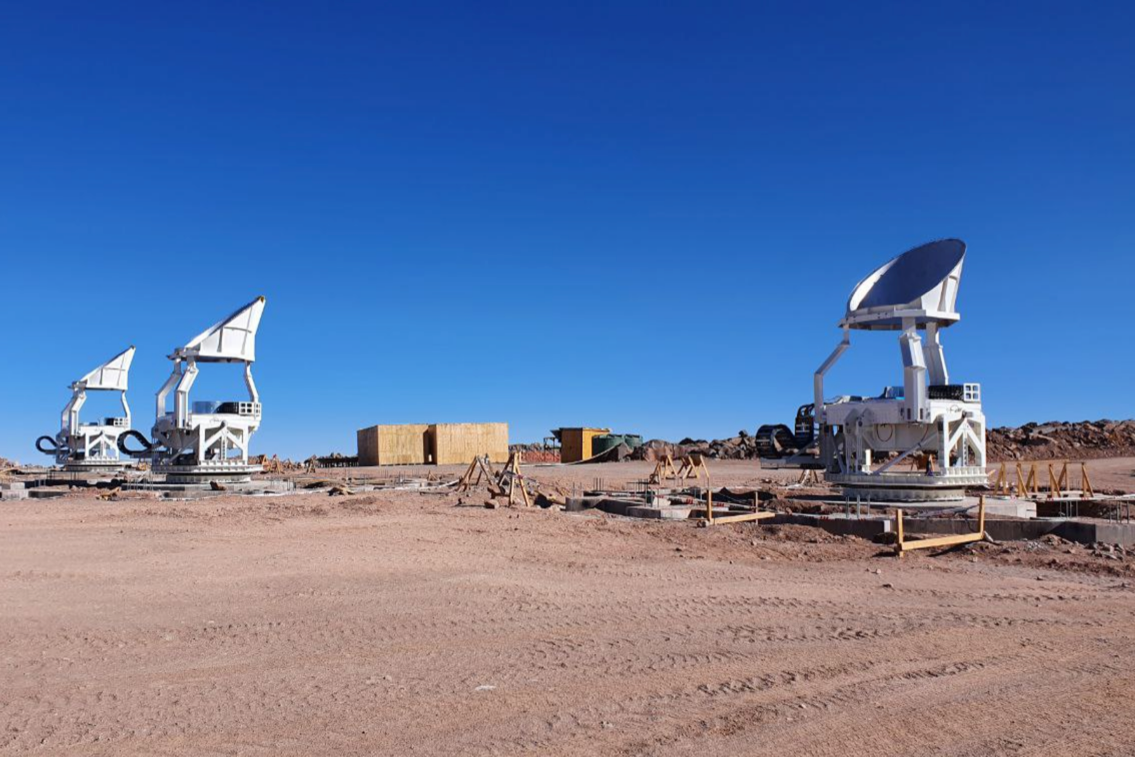UK joins mission to hunt for the universe’s origins
Six UK universities will deliver a major upgrade to the cosmic microwave background (CMB) experiment known as Simons Observatory.

Your support helps us to tell the story
From reproductive rights to climate change to Big Tech, The Independent is on the ground when the story is developing. Whether it's investigating the financials of Elon Musk's pro-Trump PAC or producing our latest documentary, 'The A Word', which shines a light on the American women fighting for reproductive rights, we know how important it is to parse out the facts from the messaging.
At such a critical moment in US history, we need reporters on the ground. Your donation allows us to keep sending journalists to speak to both sides of the story.
The Independent is trusted by Americans across the entire political spectrum. And unlike many other quality news outlets, we choose not to lock Americans out of our reporting and analysis with paywalls. We believe quality journalism should be available to everyone, paid for by those who can afford it.
Your support makes all the difference.An international astronomy mission to search the skies for cosmic origins of the universe is to be joined by UK scientists.
Six UK universities will deliver a major upgrade to the cosmic microwave background (CMB) experiment known as Simons Observatory (SO).
The CMB is the trail of heat left by the Big Bang, and scientists say studying it can shed light on our understanding of how stars and galaxies were formed.
This major investment by UKRI will allow UK researchers to spearhead discoveries alongside partners in this international facility, uncovering the secrets from the very dawn of time
Dr Colin Vincent, associate director for astronomy at the Science and Technology Facilities Council, said: “This major investment by UKRI (UK Research and Innovation) will allow UK researchers to spearhead discoveries alongside partners in this international facility, uncovering the secrets from the very dawn of time.”
The Observatory is a ground-based telescope on a mountain 5,200m (17,000 feet) above the Atacama Desert in Chile.
Prior to the new UK contribution, it was comprised of a single large aperture telescope and three small aperture telescopes.
Fluctuations in the CMB, the heat left over from the hot, early days of the history of the Uuiverse, reveal shifts in how matter was distributed shortly after the Big Bang, which are the initial seeds of all structure in the Universe.
The two types of telescope will do two different jobs.
The small aperture telescopes are focused on searching for signatures of primordial gravitational waves.
While the large telescope will address a range of unsolved questions including the nature of neutrinos and other relativistic species, the nature of dark matter, and the physics giving rise to the observed accelerated expansion of the universe.
The international project is led by the US, supported by the Simons Foundation and the Heising-Simons Foundation, and includes 85 institutes from 13 countries.
From next month the six universities delivering the major new UK contribution are:
– Cambridge– Cardiff– Imperial College London– Manchester– Oxford– Sussex
With £18 million funding from UKRI the UK will be leading on two additional telescopes providing a major increase in the sensitivity of the facility, along with UK expertise in data processing and analysis.
SO spokesperson Professor Mark Devlin, from The University of Pennsylvania, said: “Simons Observatory is very excited by the addition of the UK contribution to the programme.
“The addition of the new telescopes and researchers will be a significant addition to our program and will help to ensure SO returns amazing science for years to come.”